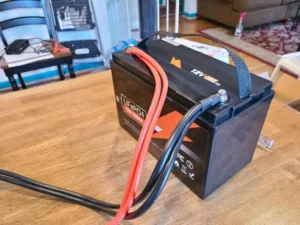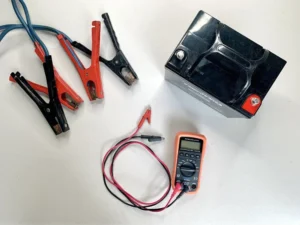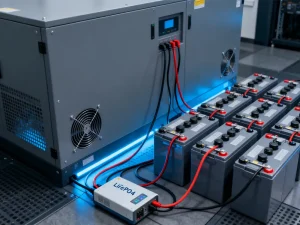If you are considering using LiFePO4 batteries, you may have a simple yet essential question: Do LiFePO4 batteries need a special charger? The short answer is yes, but let’s break it down in simple language so you understand why and how to charge them safely.
LiFePO4 stands for Lithium Iron Phosphate, a type of lithium battery. These batteries are lighter, safer, and last much longer than traditional lead-acid batteries. They are used in solar systems, electric vehicles, RVs, boats, and even backup power systems. But like any battery, they need proper care, especially during charging.

What Makes LiFePO4 Different from Other Batteries?
LiFePO4 batteries differ from lead-acid and standard lithium-ion batteries. Here’s why:
- Stable Chemistry: They are safer and less likely to overheat or catch fire.
- Long Life: They can last 8–12 years and handle 3000–5000 charge cycles.
- Fast Charging: They accept higher charging currents without damage.
- Depth of Discharge: You can safely use 80–90% of the battery’s capacity, compared to 50% in lead-acid batteries.
Due to these differences, charging LiFePO4 batteries differs slightly from charging lead-acid or regular lithium-ion batteries. Using the wrong charger can reduce the battery’s lifespan or even damage it.
Do LiFePO4 Batteries Need a Special Charger?
YES! The main reason you need a special charger for LiFePO4 is that these batteries have specific voltage requirements.
- Charging Voltage: LiFePO4 batteries typically require a charging voltage of 3.6–3.65V per cell. For a 12V battery (4 cells in series), the charger should supply 14.4–14.6V.
- Charging Current: LiFePO4 batteries can handle higher currents, but they must be controlled to avoid overheating.
- Protection: LiFePO4 batteries often include a Battery Management System (BMS), which protects against overcharge, over-discharge, and short circuits. A compatible charger is essential for safe operation with the BMS.
If you use a standard lead-acid charger or a normal lithium-ion charger, the voltage may be too high or too low. This can:
- Shorten battery life
- Cause permanent damage
- Trigger the BMS to shut down the battery
LiFePO4 batteries require a specialized charger designed for their unique chemistry.
Can I Charge a LiFePO4 Battery with a Normal Charger?
Many people ask: Can I charge a LiFePO4 battery with a normal charger?
- Lead-acid Charger: Sometimes, it can work if the charger has a regulated voltage of around 14.4V. But it‘ not recommended because it may not fully charge the battery and can reduce lifespan.
- Lithium-Ion Charger: Regular lithium-ion chargers are usually designed for 3.7V cells. LiFePO4 cells require a slightly lower voltage so that the charger does not overcharge the battery.
Bottom line: You might get some charge, but it’s not safe for long-term use. A dedicated LiFePO4 charger is the safest and most efficient choice.
How to Charge LiFePO4 Batteries Safely?
Charging LiFePO4 batteries is simple if you follow a few rules:

1. Use a LiFePO4-Compatible Charger
- Look for chargers that explicitly say “LiFePO4″ or “Lithium Iron Phosphate.”
- These chargers are designed to stop charging at the right voltage and current.
2. Avoid Overcharging
- Overcharging can damage the battery and shorten its lifespan.
- The charger should stop at 3.65V per cell.
3. Avoid Deep Discharge
- LiFePO4 batteries handle 80–90% depth of discharge, but avoid draining below 10–20% for best life.
4. Keep it Cool
- Avoid charging in high temperatures above 45°C.
- Heat can reduce battery life and performance.
5. Use the Battery Management System (BMS)
- Most LiFePO4 batteries have a built-in BMS.
- It automatically prevents overcharge, over-discharge, and short circuits.
- Always ensure your charger is compatible with the BMS.
Charging Options for LiFePO4 Batteries
Here are common ways people charge their LiFePO4 batteries:
1. Solar Charger
- Solar panels can charge LiFePO4 batteries efficiently.
- Use a solar charge controller rated for LiFePO4.
- These controllers manage voltage and prevent overcharging, even on sunny days.
2. AC Wall Charger
- Plug the LiFePO4 charger into a normal wall socket.
- The charger converts AC to DC and charges the battery safely.
3. DC Charging
- Some EVs or RVs have DC chargers that can charge LiFePO4 batteries directly.
- These chargers are faster and suitable for high-capacity batteries.
Benefits of Using the Right Charger

When you use a charger designed for LiFePO4 batteries, you get:
- Longer Lifespan: Proper charging ensures thousands of cycles.
- Faster Charging: LiFePO4 can charge up to 80–90% quickly.
- Safety: Less risk of overheating, gas, or fire.
- Efficiency: The battery delivers maximum usable capacity.
Common Mistakes & Warning Signs
Even though LiFePO4 is safe and easy to use, some mistakes can shorten battery life:
- Using a lead-acid Charger: Can overcharge or undercharge the battery.
- Ignoring the BMS: Always ensure the BMS is working. It prevents damage.
- Charging at Extreme Temperatures: Heat and cold can reduce lifespan.
- Frequent Deep Discharge: Using below 10% DoD repeatedly is harmful.
If you are unsure, here are signs your charger is not suitable:
- The battery doesn’t reach full voltage (below 14.4V for a 12V battery).
- The charger gets very hot.
- Battery warning lights or BMS shutdown.
- Reduced battery life after a few months.
Tips for Safe and Efficient Charging
- Always read the battery manual and follow manufacturer’s instructions.
- Check the charger label for “LiFePO4” compatibility.
- Charge in a well-ventilated area to prevent heat buildup.
- Monitor voltage during the first few charges to ensure everything works correctly.
- Avoid mixing LiFePO4 with other battery types in the same system.
Do LiFePO4 Batteries Need a Special Charger – Final Answer
Yes. LiFePO4 batteries do need a special charger. Using the correct charger ensures:
- Safe charging
- Maximum battery life
- Fast and efficient energy use
- Protection of internal electronics and BMS
While it is technically possible to charge a LiFePO4 battery with a normal charger, it is not recommended. Long-term use with an incompatible charger can damage your battery and reduce its performance.
Conclusion
LiFePO4 batteries are modern, safe, and long-lasting, making them ideal for solar systems, RVs, electric vehicles, and backup power. But proper charging is essential.
- Always use a LiFePO4-compatible charger.
- Avoid overcharging and deep discharge.
- Take advantage of the built-in BMS for safety.
Following these simple steps will help you enjoy the full benefits of charging lithium iron phosphate batteries and ensure your battery lasts for many years.
Remember, the small investment in a proper charger pays off with longer battery life, better performance, and peace of mind.
